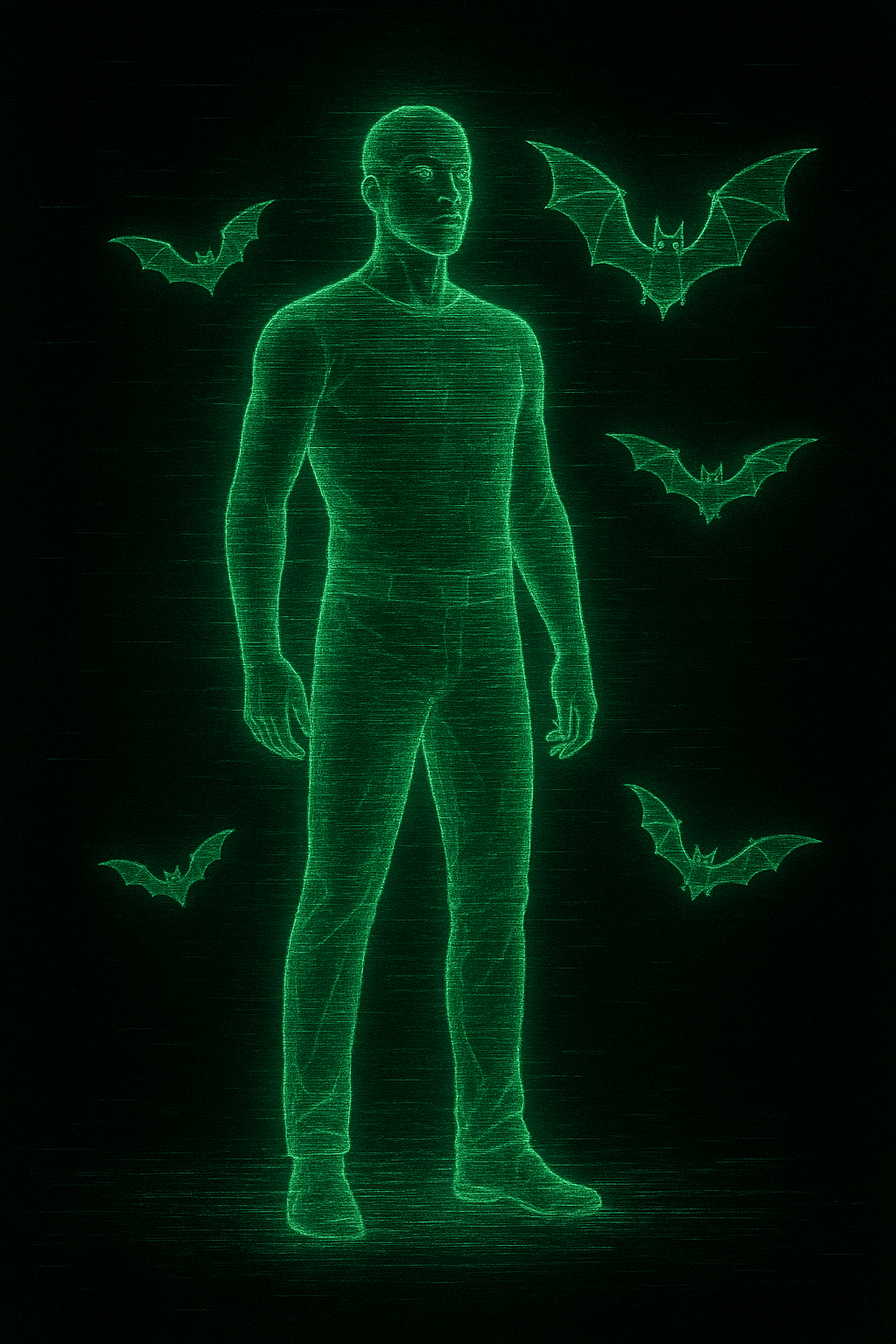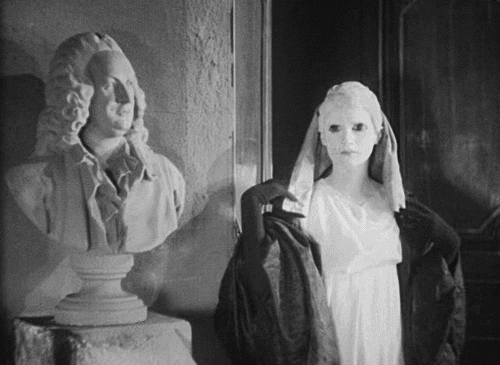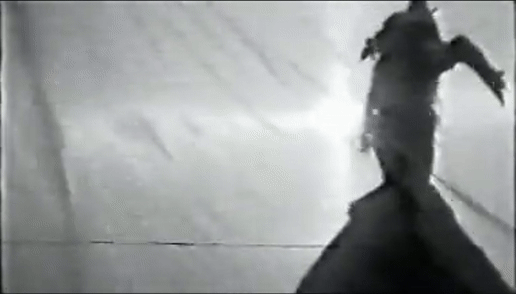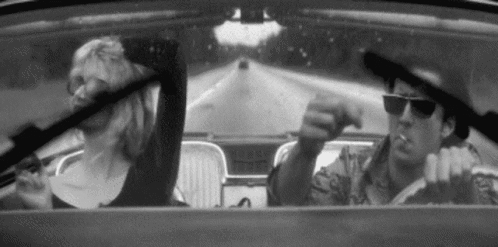 ..
..i dyed my hair pink because i’m mentally stable
The dye stained the sink, my palms, the edge of the mirror. I watched the pink foam run down the drain and thought: well, this is what stability looks like now.
 The Blood of a Poet (1930), Jean Cocteau
The Blood of a Poet (1930), Jean Cocteau
Facing the self
I’ve worn many identities, legal or not. Masks, reset buttons, quick escapes. Change my name, cut my hair, switch styles like outfits. I grew up between worlds, with a mind that didn’t fit where I came from and means that didn’t fit where I wanted to go. So I followed whatever each experience had to offer, learning that the easiest way to adapt was to blur myself, to shift just enough to fit. I kept what I loved hidden, as if secrecy made it safer. I always said I wanted to experiment more in life, because it brings you closer to reality, closer to god, though at the same time it pushes you further away from people.
What is it that we call identity: a name, a memory, a role we play, or something deeper that resists all change, something that endures beneath every mask. How would you define yourself.
When you lose track of who you are, the only compass left is often the child you once were. What did you dream of then, and would that child be proud of you now?
I was thinking about it. When I was growing up, my idols were always women who felt like they were burning from the inside out. Brody Dalle, Courtney Love, Katie Jane Garside …
Unstable, loud, magnetic. That, to me, was freedom.

Madness has always been close, an allure I could never ignore, yet in recent years it turned to fear, enough to mistake difference for its symptom and bend myself into conformity. Seeing what others cannot is a dangerous gift, a vision that can lead either to clarity or to the fall, and nothing in it is absolute, because its shape always depends on the world one moves through, a world where difference becomes illness only because others have chosen another norm.
Facing the world
It always felt like too much for people to handle. Somewhere along the way, passion got lost. Life never felt like the books or movies, yet inside me it burned with the same weight as Werther’s longing or the fierce loyalty of Pushkin’s Captain’s Daughter.
Love never felt this way.
Not as fragile like Candy, not as intimate and raw like Gaspar Noé’s Love, not as poetic like Froth on the Daydream, not wild and free like Wild at Heart, not timeless and artistic like Only Lovers Left Alive. I also found the story between Caroline and Fred in The Metamorphosis of Prime Intellect very romantic.

Maybe that is why we get lost. We carry dreams that never quite match reality, and the collision leaves us hollow. In the silence that follows, we reach for what is closest, copying the gestures around us, and soon we mistake imitation for direction. Passion fades, routine takes its place. Most days slip away in work that feels detached from meaning. Money is never the real measure. The real question is simple. Do you actually create value.
Sitting in a chalet in the backyard with a laptop, a little girl hating Windows and dreaming of building a computer and an operating system no one could ever track. She was growing up with a keylogger. The dream never happened. For ten years she didn’t touch a computer.
I’ve come to think that honoring life means trying, in whatever way possible, to make the world a little better. I remember how we once looked at it with clear eyes and felt the weight of its injustice, and from that wound came the dream of building something better. That dream was never naïve, it was the only honest vision we ever held.
History itself is written in architectures, from cities of stone to machines of code. We can build, we can arrange, but we cannot create like God.
I have always been obsessed with creation. I wrote a thesis on it. Yet what we call creation is never the world itself, only a way of reaching closer to its source. Every attempt is a fragment, a reflection of something we can sense but never fully grasp. There is something about computers that fascinates me for this reason, as if through them we were tracing the outlines of a truth older than us.
The era of the nonchalant gimmick is fading.
The future belongs to those who care deeply, who are not afraid to show the weight of their effort. Indifference will not survive. The world needs to move toward authenticity, and what will set us apart is how much of ourselves we give.
I want to walk that path, to hold on to love, to create value, and to let my life unfold in its own form, never as a sellout again.
